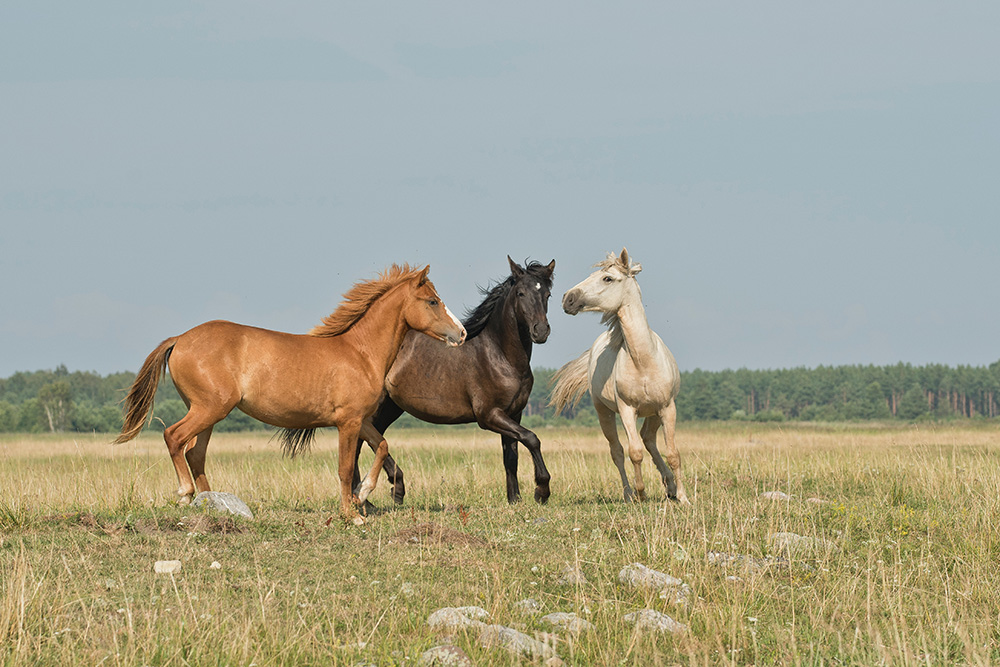Horses, known for their physical prowess and grace, also possess highly intelligent and curious minds. To ensure the holistic well-being of these magnificent creatures, it’s essential to recognize the significance of mental stimulation in their daily lives. In this blog, we explore the importance of mental stimulation for horses and the benefits of engaging the equine mind. We’ll also share practical strategies to provide mental enrichment for horses.
The Intelligent Equine Mind
Horses are inherently intelligent and social beings with a natural curiosity about their surroundings. In the wild, they spend a significant portion of their day foraging and exploring, activities that stimulate their minds and keep them mentally sharp. Domesticated horses, however, may lack these opportunities, making it crucial for horse owners to actively incorporate mental stimulation into their routines.
Benefits of Mental Stimulation for Horses
Preventing Boredom and Stereotypic Behaviors
Boredom can lead to stereotypic behaviors in horses, such as cribbing or weaving. Providing mental stimulation helps alleviate boredom, reducing the likelihood of these unwanted habits.
Enhancing Cognitive Abilities
Mental stimulation challenges horses to think, problem-solve, and learn. This contributes to the development and maintenance of their cognitive abilities, keeping their minds sharp and active.
Reducing Stress and Anxiety
Mental engagement has a positive impact on a horse’s emotional well-being. Activities that stimulate the mind can reduce stress and anxiety, fostering a more content and relaxed equine companion.
Building Trust and Bonding
Interactive activities strengthen the bond between horse and owner. Engaging the horse’s mind in a positive way builds trust and reinforces the human-equine connection.

Practical Strategies for Mental Stimulation
Enriched Turnout Areas
Create varied and enriched turnout spaces that mimic natural environments. Include features like obstacles, different surfaces, and safe objects for exploration.
Puzzle Feeders
Use puzzle feeders to dispense small amounts of feed throughout the day. This encourages natural foraging behavior and extends the time horses spend engaged in an activity.
Training Sessions
Regular training sessions provide mental stimulation by introducing new commands, challenges, and tasks. Positive reinforcement techniques can make learning enjoyable for the horse.
Introduce Novel Objects
Horses are naturally curious, and introducing new objects to their environment keeps them engaged. Novel items, such as toys or safe hanging objects, can capture their interest.
Trail Riding and Exploration
Take horses on trail rides or hand-walk them in different environments. Exposure to new sights, sounds, and smells provides mental stimulation and enriches their sensory experiences.
Social Interaction
Horses are social animals, and interaction with other horses or companion animals is vital for their mental well-being. Ensure they have opportunities for socialization.
Rotate Pasture Grazing Areas
If possible, rotate horses through different grazing areas. This not only supports natural foraging instincts but also provides a change of scenery and mental stimulation.
Engaging the equine mind is a key component of responsible horse ownership. By recognizing and addressing the cognitive needs of horses, we contribute to their overall well-being, creating content, happy, and mentally stimulated equine companions. Incorporating a variety of activities into their daily routines not only benefits the horse but also deepens the bond between horse and caretaker, fostering a relationship built on trust, understanding, and shared enrichment.
